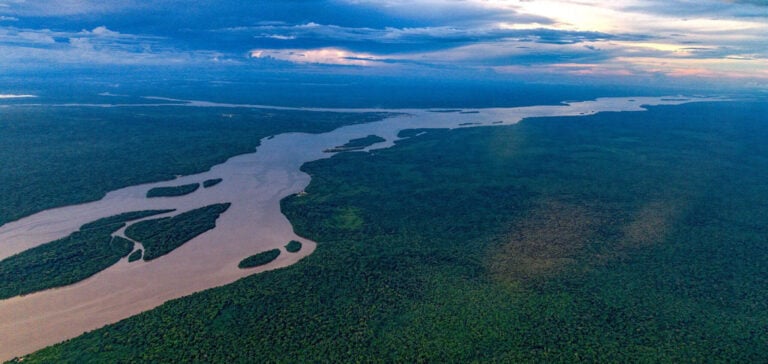The discovery of oil in Guyana creates geopolitical tensions with Venezuela, as eight oil companies obtain drilling permits.
According to Guyana’s Ministry of Natural Resources, ExxonMobil has discovered a major hydrocarbon reservoir in the 160,000 square kilometer Essequibo region, administered by Guyana, and claimed by Venezuela in a territorial dispute dating back to the 19th century. With its partners Hess and CNOOK, the US oil giant has since 2015 discovered 46 reservoirs off the coast of Guyana, including four since the start of the year.
A territorial dispute rooted in history
Guyana, a former British colony, claims that the current maritime boundary with Venezuela is based on an 1899 decision by a Paris court of arbitration. A verdict never accepted by Caracas, which maintains that the Essequibo River has been a natural border recognized as such since independence from the Spanish crown in the early 19th century. The dispute, which is before the International Court of Justice in The Hague, intensified after ExxonMobil’s first oil discovery eight years ago. Venezuela has announced that it will hold a referendum on December 3 on the annexation of Essequibo. Guyana considers it illegal, with the support of the Caribbean Community (Caricom) and the Organization of American States (OAS).
Reactions and implications
In a statement on Wednesday, Caricom said the referendum had “no validity, scope or status under international law”, and added that it “sincerely hopes that Venezuela does not raise the prospect of resorting to force or military means”.
Guyana’s vice-president Bharrat Jagde also announced on Thursday that he had authorized eight oil companies to carry out drilling operations off the Essequibo after invitations to tender. These include TotalEnergies, in partnership with Qatar Energy and Malaysia’s Petronas, as well as Nigeria-based International Group Investment Inc, US-based Liberty Petroleum Corporation, Hess and ExxonMobil, China National Offshore Oil Corporation (CNOOC) and Guyana-based SISPRO Inc. Each company will have to pay a signature bonus of $10 million in the case of shallow water block exploration and $20 million in the case of deep water exploration, the vice-president emphasized. “We now need to meet with the parties to whom the blocks have been awarded to negotiate the contracts.”
The discovery of oil in Guyana has raised geopolitical tensions in the region, while the territorial dispute with Venezuela continues. The future of this complex situation remains uncertain, but it’s clear that the discovery of these hydrocarbon reservoirs has significant repercussions for the region’s politics and economy.






















